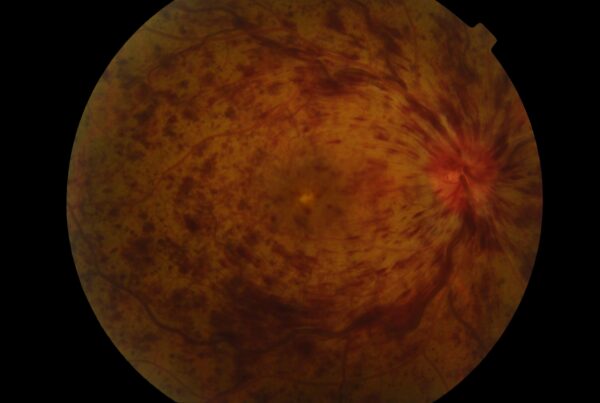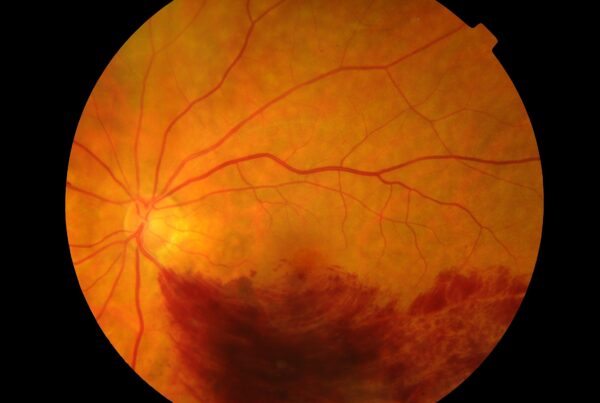Retinal Vein Occlusion
What is Retinal Vein Occlusion?
Retinal vein occlusion happens when a vein in the retinal circulation becomes blocked. The retinal veins are blood vessels inside the eye which drain blood away from the retina back to the heart. When it cannot drain properly, there is pooling of blood which in turn may cause the area to swell and bleed (haemorrhage). Macular edema (or swelling of the macula) is a common cause of visual impairment in retinal vein occlusion. Sometimes serious complications of retinal vein occlusion may occur including vitreous hemorrhage or rubeotic glaucoma which may result in blindness or even loss of the eye if the condition is not treated properly.
There are two forms of retinal vein occlusion:
- Central Retinal Vein Occlusion (CRVO): This occurs when the large central retinal vein at the optic nerve is blocked resulting in poor blood flow throughout the entire retina and can cause severe visual loss.

- Branch Retinal Vein Occlusion (BRVO): This occurs when a branch of retinal vein is blocked. Visual loss may not as be severe as CRVO.

Who is at risk?
Because the main cause of Retinal Vein Occlusion is atherosclerosis (hardening or thinning of arteries and veins), it is seen more common in people with:
-
High blood pressure
-
High cholesterol
-
Diabetes
-
Glaucoma
-
Blood disorders
-
History of smoking
What are the symptoms?
-
Blurred vision, due to leakage of fluid into the macula
-
Floaters, seen as spots which float in your visual field
-
Pain in the eye, due to excessive eye pressure
-
Sudden/gradual visual loss
How is it diagnosed?
Retinal Photography and an OCT Scans are taken to assess the leakage (macular edema). Our retina specialists may also perform Fluorescein Angiography to assess the severity of the retinal vein occlusion and to guide treatment. In addition, other blood tests or tests involving other parts of the body may also be ordered to determine underlying possible causes.
How can it be treated?
Our retina specialists will discuss the different treatment options with you. The options include intravitreal injections into the eye, Multispot Micropulse Yellow Laser Surgery, conventional thermal laser surgery, vitreoretinal surgery, lowering blood pressure and diet and lifestyle modifications.
